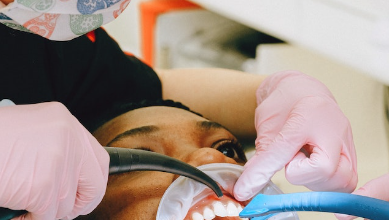Easy Before Bed Routines for People with Diabetes

With the popularity of processed foodstuff and people leading relatively sedentary lifestyles, they are becoming more prone to diabetes.
And as a menace affecting both the old and young, the disease is already so widespread that every one in ten Americans has it.
If you have diabetes, it’s crucial that you learn and arm yourself with tactics that help you manage the condition.
Managing diabetes tends to become a routine during the day. The nighttime, however, is a difficult time to watch over your illness because it’s the end of the day, and most people are tired and out of sorts.
The thing is, everyone’s blood sugar fluctuates at night. But if you have diabetes, you’re at risk of off-the-chart fluctuations.
To maintain a proper blood sugar level at night, we have come up with a healthy to-do list before bedtime.
Routine Blood Sugar Check
Monitoring and controlling your blood sugar before bed is important for diabetes management.
Checking your blood sugar before bed allows you to take steps to avoid spikes or drops at night. It also shows how well the medication and daytime management efforts are working.
You also want to make the bedtime checks a habit so that you and your doctor know whether your current medications and other treatments adequately control your blood sugar levels overnight.
Take a Bedtime Snack
A bedtime snack is one of the tricks you can use to stabilize your blood sugar levels during the night.
As we mentioned, everyone experiences changes in blood sugar levels at night. In diabetes patients, these changes can be dangerous, resulting in high blood sugar in the morning.
Some of the things that cause blood sugar fluctuations overnight include:
- Increased glucose release by your liver
- Medicating before sleep
- Using too much insulin
- Hormonal release, and many more.
Choosing a favorite bedtime snack will depend on personal preferences and body reaction after snacking. It’s recommended to go for snacks with limited carbs, high-fiber content, low-fat, and rich in proteins.
Try snacks like almonds and peanuts, whole-wheat crackers, roasted chickpeas, apple slices, or sugar-free Greek yogurt.
One thing to remember is that different sacks may affect people differently. We recommend you consult a dietitian to help you choose the best snack for you.
Additionally, you should monitor your sugar levels to determine how much snack to take.
Try Microdosing Cannabis
Recent research has found that diabetes patients can benefit from cannabis through two of its compounds known as Tetrahydrocannabivarin (THCV) and cannabidiol (CBD). The two compounds are able to help with controlling blood sugar.
However, since cannabis has not yet been approved and made available as a diabetes treatment, taking it should come with precautions.
Talk to your doctor about trying out the two cannabis compounds to manage your condition.
Nowadays, with the microdosing tactic, anyone can use cannabis extracts without worrying about the psychoactive aspect. This guide explains more about microdosing cannabis.
Avoid Alcohol and Stimulants
Stay away from alcohol and stimulants like coffee and soda.
Alcohol will spike your blood sugar, leaving you with a risk of hyperglycemia. You want to avoid unhealthy glucose fluctuations, which can be difficult to stabilize.
Make sure you don’t take alcoholic drinks before bed.
But not just alcohol.
Coffee, soda, energy drinks, and other stimulants will also disrupt your sleep pattern, affecting your blood sugar levels.
The goal is to avoid anything that will not let your body relax and wind down. You can also consider calming activities of your choice, including meditation which ushers sleep.
If you already have sleep problems consult an expert to find a solution.
Limit Screen Time
A consistent sleep routine is important for diabetes patients. Try not to disrupt your sleep, especially through screen time.
While Netflix is fun, it’s advisable shortly before bed. You want to avoid the TV, smartphone, laptop, or gaming console.
But there are reasons why blue-screen devices are discouraged. And while screen time is ok at other times, it’s not advisable before bed as it may disrupt your sleep, triggering a blood sugar spike.
Conclusion
It’s important that you have a healthy diabetes routine that works for you. We have given you simple expert tips to manage your condition and live a relatively normal life without worrying about overnight glucose spikes.
For more valuable information visit the website





